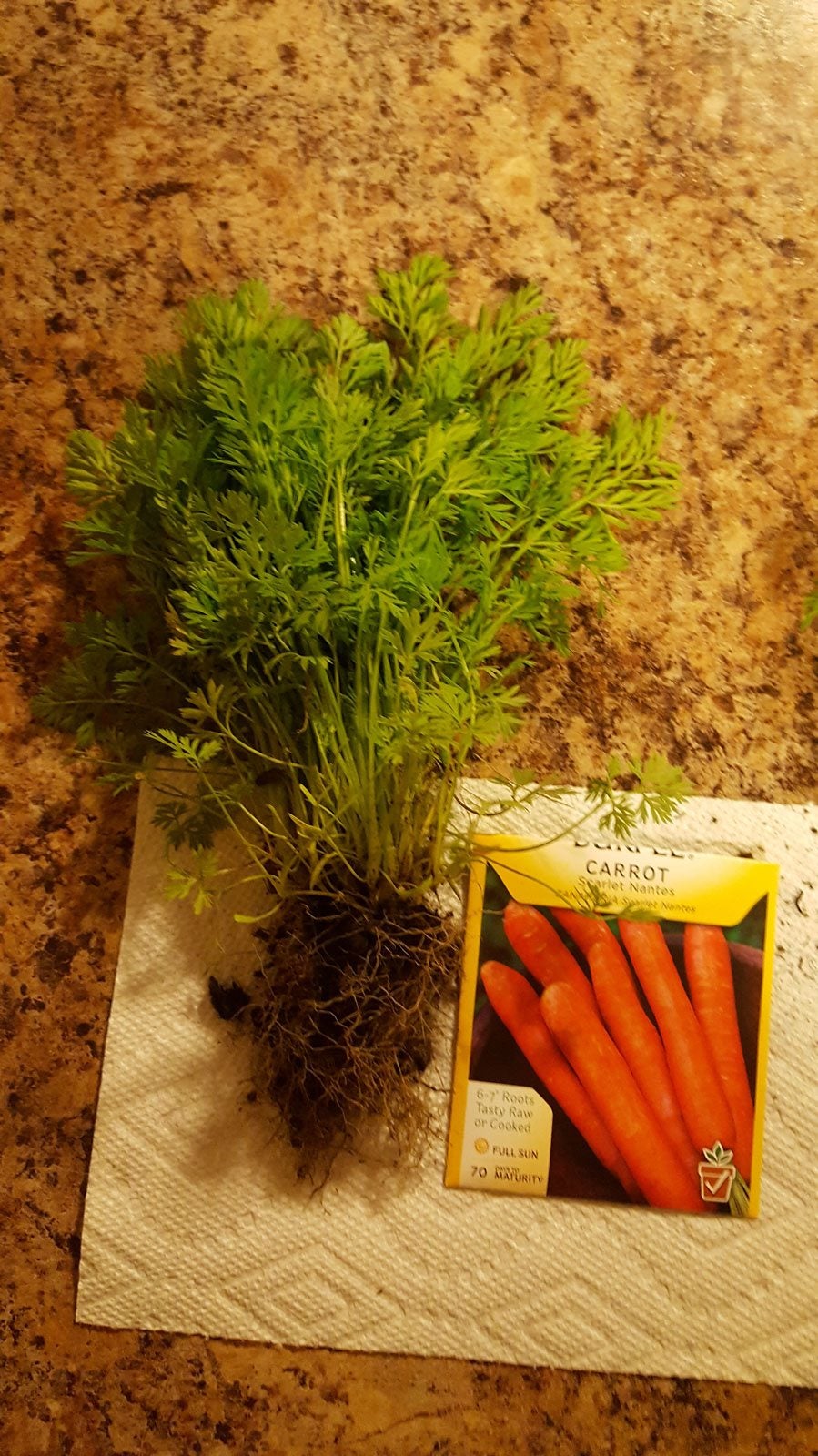
Sign up for the Gardening Know How newsletter today and receive a free copy of our e-book "How to Grow Delicious Tomatoes".
You are now subscribed
Your newsletter sign-up was successful
Carrots are one of the most popular vegetables, good cooked or eaten fresh. As such, they are also one of the most common crops in the home garden. Properly seeded, they’re a fairly easy crop to grow, but that doesn’t mean you won’t encounter carrot growing problems. Getting carrot plants to form roots or carrot roots that become gnarled are among the more common carrot growing problems. The following article centers on how to get carrots to grow properly.
Help, My Carrots Do Not develop!
There are several reasons for carrots not forming roots. First of all, they may have been planted when it was too hot. Carrots germinate best when the temperature of the soil is between 55 and 75 degrees F. (13-24 C.). Any warmer and the seeds struggle to germinate. Warm temperatures will also dry out the soil, which makes it difficult for seeds to germinate. Cover the seeds with grass clippings or the like or a row cover to help retain moisture.
How to Get Carrots to Grow Properly
A more likely cause for carrots not forming well or growing is heavy soil. Heavy, clay soils don’t allow good sized roots to form or result in twisted formation of roots. If your soil is dense, lighten it up with the addition of sand, broken down leaves, or well-rotted compost prior to planting. Be careful about amending with too much nutrient-rich compost. Excess nitrogen is great for some crops, but not carrots. Too much nitrogen will give you gorgeous, big green carrot tops but carrots lacking in root development or those with multiple or hairy roots will also result. Difficulty getting carrot plants to form roots might also be the result of overcrowding. Carrots need to be thinned early. A week after sowing, thin the seedlings to 1 to 2 inches (2.5-5 cm.) apart. Thin the carrots to 3 to 4 inches (8-10 cm.) apart again a few weeks later. Lack of water may also cause carrot roots to lack in development. Insufficient water causes shallow root development and stresses the plants. Water deeply once a week in most soils. Predominantly sandy soil should be watered more frequently. During periods of lengthy heat and drought, water them more often. Lastly, root-knot nematodes may cause carrots to deform. A soil test will verify the presence of nematodes. If they are present, the soil might need to be solarized by treating it with the sun’s heat via plastic sheeting over the summer months. In the absence of solarizing the soil, move the carrot crop to a different location next growing season.
Sign up for the Gardening Know How newsletter today and receive a free copy of our e-book "How to Grow Delicious Tomatoes".

Amy Grant has been gardening for 30 years and writing for 15. A professional chef and caterer, Amy's area of expertise is culinary gardening.
